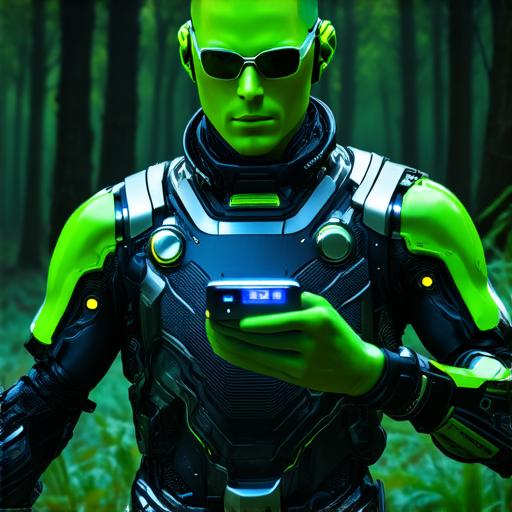Introduction
The world of virtual reality (VR) and augmented reality (AR) is rapidly evolving, and it’s not long before the term “metaverse” became part of our everyday vocabulary. But what exactly does this term mean, and how will it impact our daily lives? In this article, we will explore the concept of the metaverse, its definition, and how it will change the way we interact with each other and the world around us.
What is the Metaverse?
The term “metaverse” was first coined in a science fiction novel called “Neuromancer” by William Gibson in 1984. The book describes a virtual reality that allows users to enter a digital realm and interact with each other and their environment.
The Definition of the Metaverse
The definition of the metaverse varies depending on who you ask. However, there are some common elements that define it. These include:
- Immersive Virtual Reality: The metaverse is a virtual reality environment where users can interact with each other and their environment in real-time. It’s an immersive experience that transports users into a digital world.
- Shared Space: The metaverse is a shared space where people from all over the world can come together and interact with each other. This creates a sense of community and belonging among users.
- Interactivity: The metaverse is an interactive environment where users can engage in activities such as gaming, socializing, and creating content. It’s a place where users can express themselves and explore new ideas.
- Persistence: The metaverse is a persistent environment that exists even when users are not actively engaged in it. This means that users can return to the virtual world at any time and pick up where they left off.
- Customization: The metaverse is a customizable environment where users can create their own avatars, environments, and experiences. This allows users to personalize their virtual world and express their individuality.
The Evolution of the Metaverse
The concept of the metaverse has been evolving over the years, as technology has advanced and people have become more comfortable with virtual reality. Here are some examples of how the metaverse has evolved:
- Virtual Reality Games: Early virtual reality games like “Morpheus” and “Oculus Rift” were some of the first examples of the metaverse. These games allowed users to enter a virtual world and interact with each other in real-time.
- Social Media: Social media platforms like Facebook, Instagram, and Twitter have also played a role in the evolution of the metaverse. These platforms allow users to connect with each other and share their experiences in a virtual space.
- Online Communities: Online communities like Reddit, Discord, and Slack have become popular ways for people to interact with each other in a virtual space. These communities allow users to connect with like-minded individuals and explore new ideas.
- Virtual Events: Virtual events like concerts, conferences, and meetups have become increasingly popular as people look for new ways to connect and engage with each other. These events allow users to experience live events from the comfort of their own homes.
- Decentralized Applications (dApps): dApps are decentralized applications that run on blockchain technology. They offer a more secure and private way for people to interact with each other in a virtual space. Some examples of dApps include OpenSea, CryptoKitties, and DappRadar.
The Impact of the Metaverse
The metaverse has the potential to revolutionize the way we interact with each other and the world around us. Here are some ways it could impact our daily lives:
- Remote Work: The metaverse could make remote work more efficient and effective by allowing people to collaborate in a virtual space.
- Education: The metaverse could revolutionize education by providing students with immersive learning experiences that are more engaging and interactive than traditional classroom settings.
- Healthcare: The metaverse could be used to provide patients with immersive therapy experiences that are more effective and efficient than traditional methods.
- Entertainment: The metaverse could offer new forms of entertainment like virtual concerts, movies, and games that allow users to experience entertainment in a more immersive way.
- Travel: The metaverse could make travel more accessible and affordable by allowing people to explore new places and cultures from the comfort of their own homes.

Summary
The concept of the metaverse is still in its early stages, but it has already begun to impact our daily lives in meaningful ways. As technology continues to advance, we can expect the metaverse to become an even more integral part of our lives. Whether it’s through virtual reality games, social media, or decentralized applications, the metaverse offers a world of unlimited possibilities that are just waiting to be explored.
